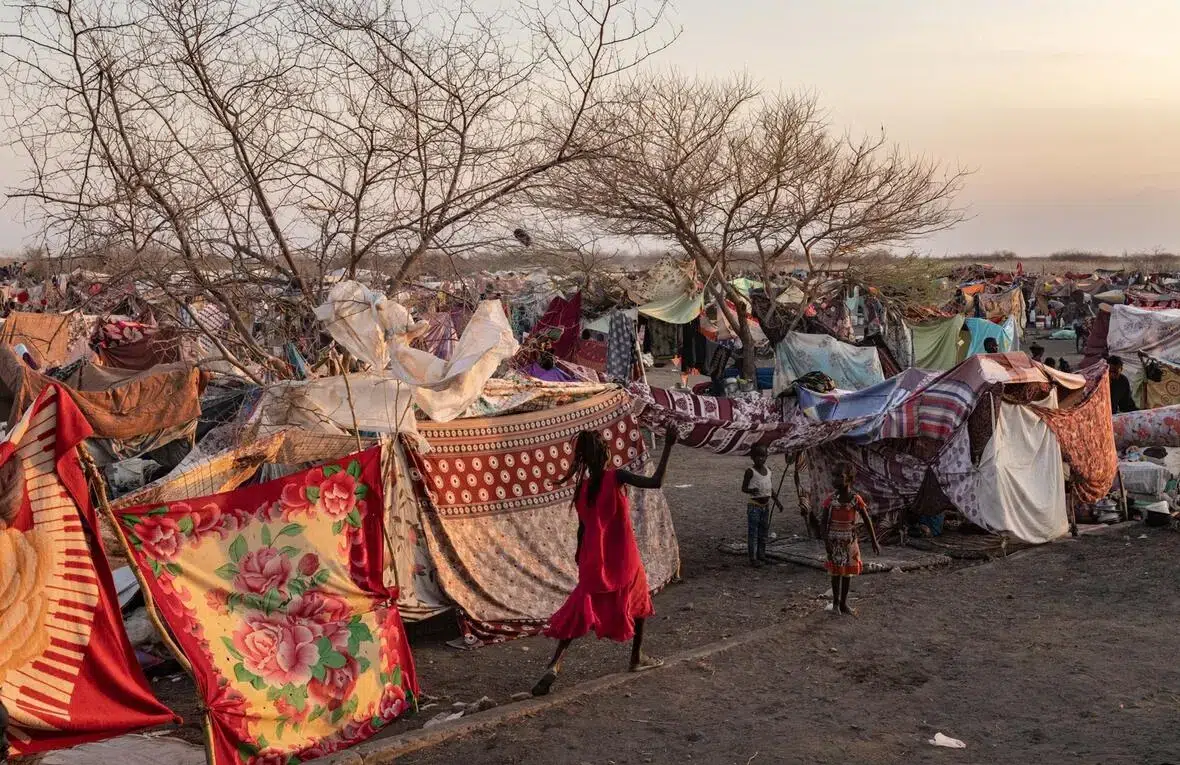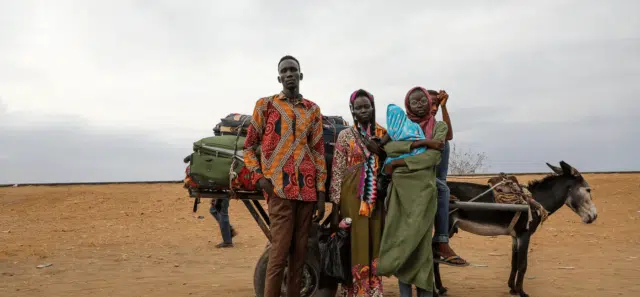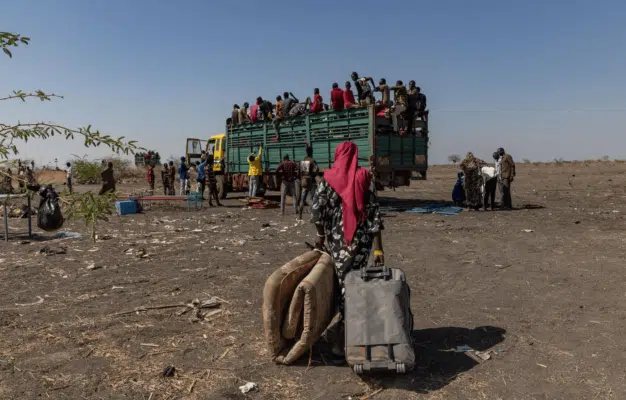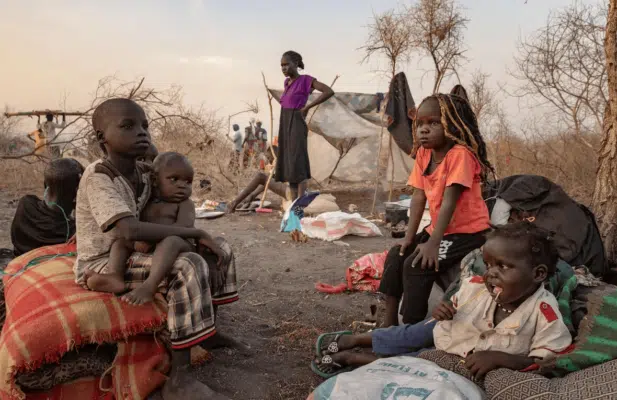
Thousands of South Sudanese refugee returnees wait at the UNHCR transit centre near the Joda border point in Renk, South Sudan, after fleeing the conflict in Sudan. © UNHCR/Andrew McConnell
This is a summary of what was said by UNHCR spokesperson Matthew Saltmarsh – to whom quoted text may be attributed – at today’s press briefing at the Palais des Nations in Geneva.
GENEVA – Over a month since the fighting started, UNHCR, the UN Refugee Agency, is making an urgent appeal for the safety of civilians and to allow humanitarian aid to move freely in Sudan as we continue to scale up our response for over 1 million people recorded displaced within Sudan and to neighbouring countries.
Inside Sudan, people are braving danger, moving notably from Khartoum, Darfur and other unsafe areas. Around 88,000 refugees hosted by Sudan have fled Khartoum for safety in White Nile, Gedaref, Kassala Madani and Port Sudan, according to the Sudanese Commission for Refugees (COR). In those locations, UNHCR is delivering critical assistance — shelters, household items, clean water and sanitation facilities, healthcare and education support — to refugees and other displaced people.
In White Nile, over 75,000 South Sudanese refugees have arrived from Khartoum, and UNHCR is verifying new arrivals, settling them in camps and providing essential relief items, while coordinating food distribution with the World Food Programme. Eritrean, Ethiopian and other refugees arriving in Eastern Sudan are also being registered and transferred to camps.
In total, over 843,000 people have been internally displaced in Sudan, according to the International Organization for Migration (IOM), with neighbouring governments and UNHCR having recorded almost 250,000 crossing borders.
The numbers of those fleeing to Egypt – the largest host — are rapidly increasing, with UNHCR partners estimating more than 5,000 arrivals a day. Almost 110,000 Sudanese have now entered the country, according to the government.
The main entry points along Egypt’s southern border are Qustul and Argeen. UNHCR’s partner, the Egyptian Red Crescent (ERC), estimates that 90 per cent of arrivals move north to Cairo and other urban areas. UNHCR is also working on scaling up its assistance and response in Aswan where many refugees are transiting.
UNHCR continues to provide emergency assistance at the border through the ERC, while new arrivals continue to approach UNHCR offices. In Cairo they are supported with registration and pre-registration protection services. Once registered, they can access education and health services. Counselling, psycho-social support and referrals are also being provided.
Many of those approaching UNHCR arrive distressed, having been exposed to violence or traumatic conditions in Sudan, and during arduous journeys. Many have lost or been separated from family, have suffered traumas or are in need of urgent medical treatment. Child protection arrangements have been activated for unaccompanied or separated children – including ‘best interest’ procedures and family tracing.
Support is also being provided for community-based responses — including from refugee-led organizations. Egypt and others hosts will need much more help to continue receiving, hosting and assisting those fleeing the conflict in Sudan.
In South Sudan arrival rates remain high, at around 1,500 a day. Of the 63,000 who have arrived, many were South Sudanese refugees in Sudan. Most arrive via the Renk crossing in Upper Nile State. The transit facility near the border is becoming severely crowded and resources are overstretched, increasing protection risks. Despite the logistical challenges, urgent efforts are being made by the government and UN partners to transport people onward to their home areas via road or river boat.
In Chad, UNHCR has delivered relief items to almost 10,000 families and has stepped up monitoring to address the most pressing protection needs and risks. Most new arrivals are in remote transit sites near the border with extremely limited resources. With the Government and partners, UNHCR started this week to relocate new arrivals to existing camps.
Initially, 20,000 newly arrived Sudanese refugees will move to camps, where they will receive a family shelter and access to education and healthcare. The imminent onset of the rainy season is adding to the urgency.
Please find the link to the B-Roll here.
For more information, please contact:
- In Dakar (regional), Alpha Seydi Ba, baalp@unhcr.org, +221 773 457 454
- In Nairobi (regional), Faith Kasina, kasina@unhcr.org, +254 113 427 094
- In Geneva, Olga Sarrado, sarrado@unhcr.org, +41 797 402 307
- In Chad, Eujin Byun, byun@unhcr.org, +235 61 60 04 87
- In New York, Kathryn Mahoney, mahoney@unhcr.org, +1 347 574 6552
- In Cairo, Christine Beshay, arecapi@unhcr.org, +2012 8214 6405
- In Ottawa, Levon Sevunts, sevunts@unhcr.org, +1 613-286-6975





